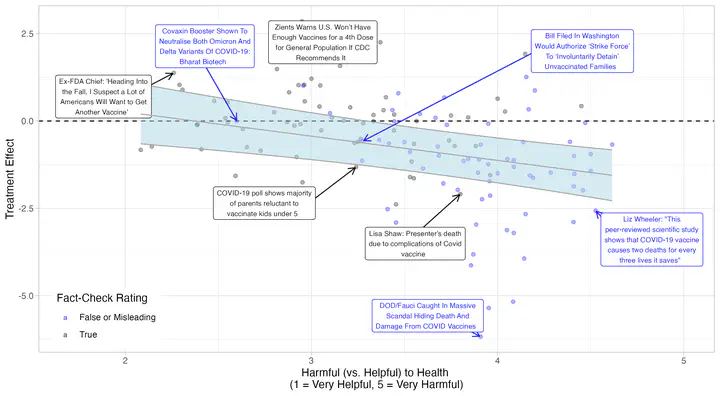Quantifying the Impact of Misinformation and Vaccine-Skeptical Content on Facebook

Abstract
Researchers and public health officials have attributed low uptake of the COVID-19 vaccine in the US to social media misinformation. To evaluate this claim, we introduce a framework combining lab experiments, crowdsourcing, and machine learning to estimate the causal effect of 13,206 vaccine-related URLs shared on Facebook on US vaccination intentions. Our model predicts this content reduced intentions by-2.3 percentage points (95% QI:-3.5,-1.0) per US Facebook user. Strikingly, we estimate the impact of misinformation was 50X less than that of content not flagged by fact-checkers that nonetheless expressed vaccine skepticism. Although misinformation was significantly more harmful when viewed, its exposure on Facebook was limited. In contrast, mainstream stories highlighting rare vaccine deaths both increased vaccine hesitancy and were among Facebook’s most-viewed stories. Our work suggests that curbing misinformation benefits public health, but highlights the need to scrutinize factually correct but potentially misleading content.